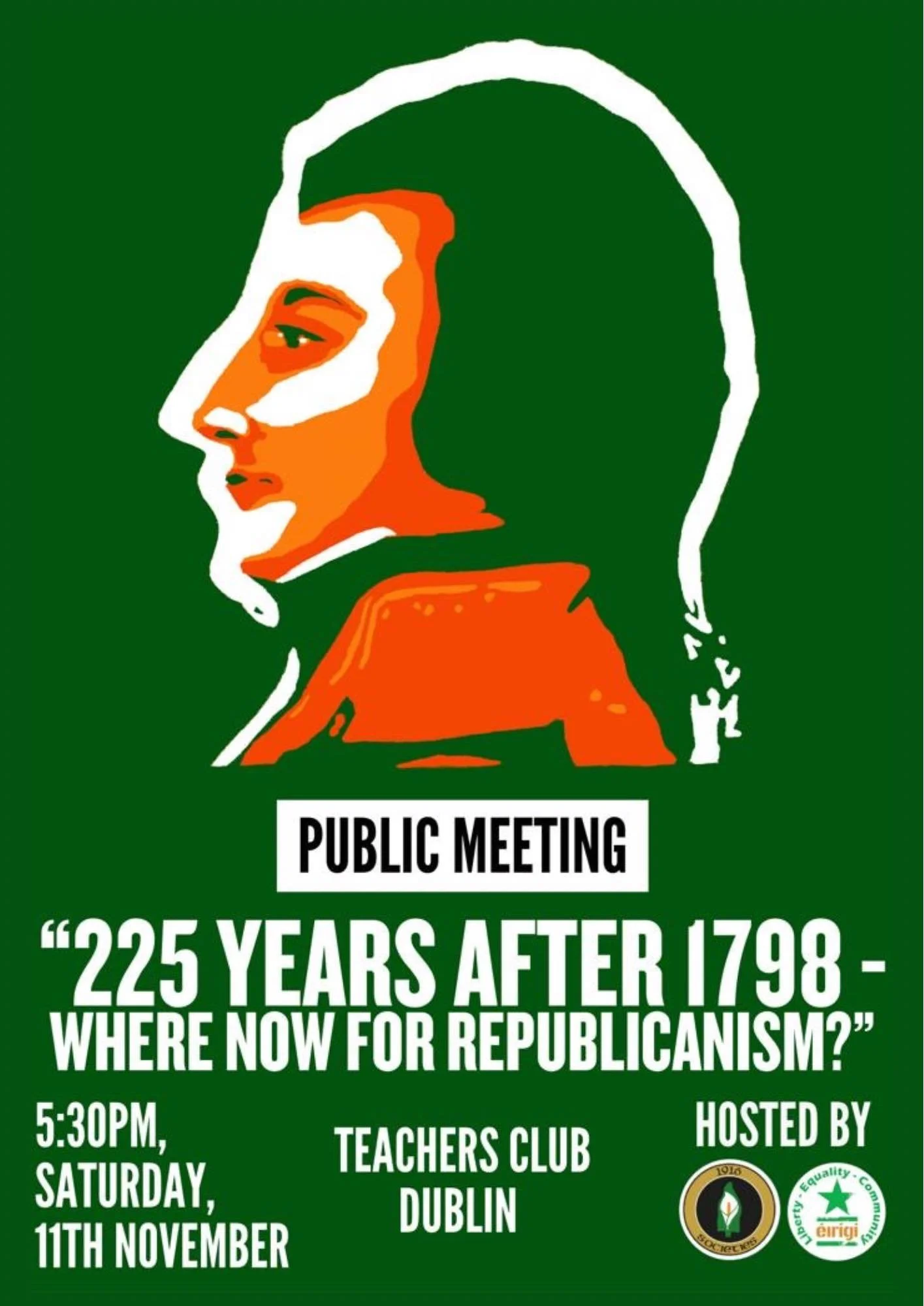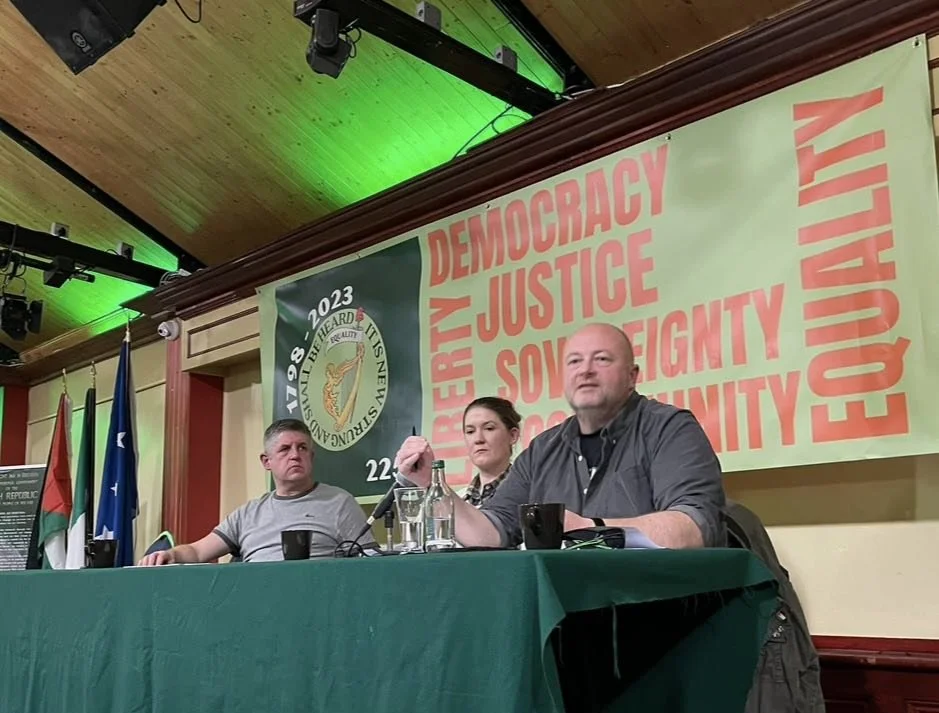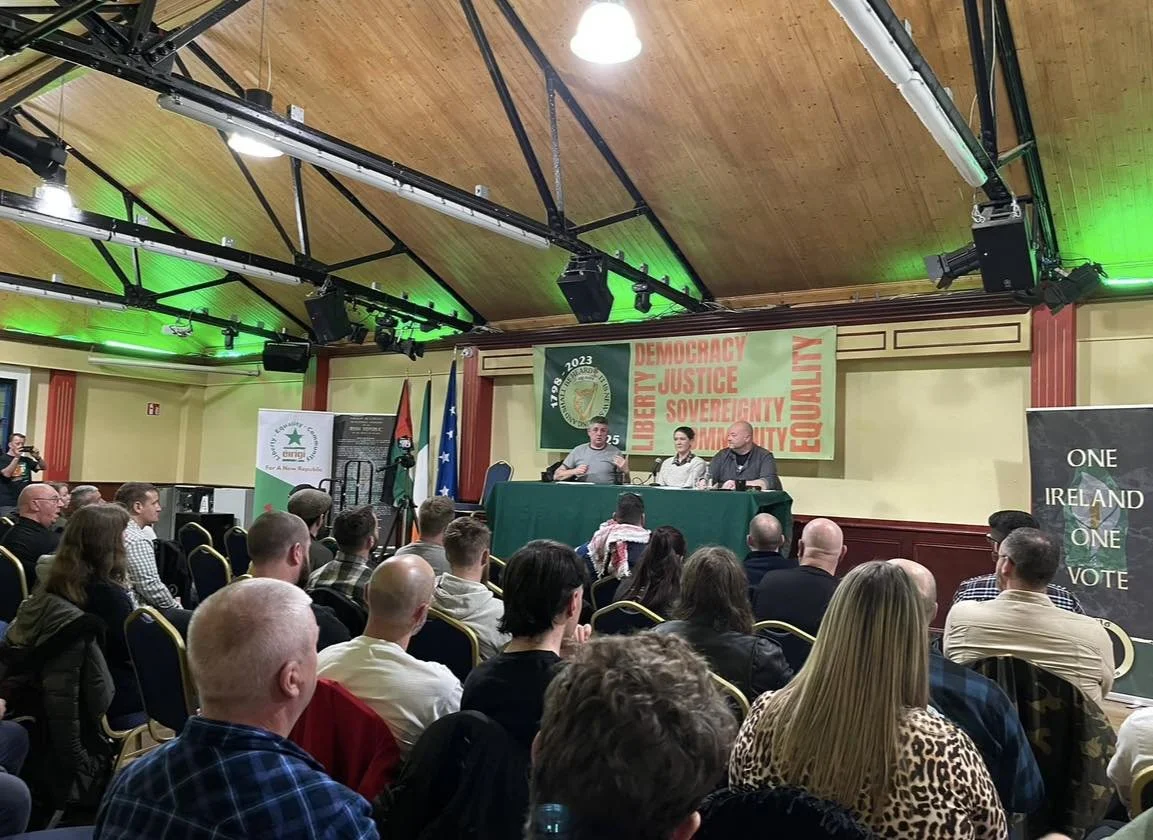Report: Éirígí And The 1916 Societies Host Joint Public Meeting '225 Years After 1798 - Where Now For Republicanism?'
Saturday the 11th of November saw Éirígí and the 1916 Societies host a joint public meeting entitled ‘225 Years after 1798 - Where Now for Republicanism?’, which took place in the Teacher’s Club in Dublin City.
The meeting was comprised of three contributions, the first coming from Fiona Moran of Éirígí, who chaired the meeting. In her introductory speech, Moran gave some background to the United Irishmen and the 1798 Rebellion.
Rooted in radical republican thinking and inspired by the American and French revolutions, these patriots aimed to build an Irish republic founded on the principles of ‘Liberty, Equality and Fraternity'. Moran explained that many of the ideals they fought for are taken for granted nowadays, but were considered revolutionary at the time.
Full video of the days proceedings.
Brian Leeson, Cathaoirleach Éirígí, then spoke. Leeson explained that the Republic envisioned in 1798, 1867 and 1916 has yet to be achieved, but with the shifting of momentum towards Irish unity, it is essential that Irish republicans seize this opportunity to push for maximise change and to build such a Republic.
Leeson also warned that we should be wary of those non-republican forces who seek to minimise change, those non-republican forces who desire the subsumption of the Six Counties into a thirty-two county ‘Free State’.
This desire is often accompanied by a reference towards ‘accommodating unionism’, in other words accommodating a reactionary ideology thats sole purpose is to maintain the connection between Ireland and Britain.
Poster advertising the meeting.
This narrative runs entirely contrary to the message of the United Irishmen, who endeavoured to “unite Protestant, Catholic and Dissenter under the common name of Irishmen in order to break the connection with England”.
Leeson concluded by emphasising the importance of republicans ensuring they are part of the debate about a united Ireland. Failure to participate in such conversation will allow non-republican forces to shape the narrative.
The final contribution of the day came from Independent Councillor and member of the 1916 Societies, Barry Monteith. Monteith drew comparisons between the counter-revolutionaries who deliberately misrepresented what the 1798 Rebellion was about and those in 1922 who accepted partition, to those in more recent years who are guilty of dressing failure up as success.
Independent Councillor Barry Monteith speaking.
Monteith explained how the Good Friday Agreement has led to entrenched sectarianism, a failed political system, and an inability to address economic inequality. It was not a victory for Irish republicans, and any attempt to present it as such should be rejected by those who strive to build an Irish Republic in the truest sense of the term.
This was followed by a Q & A session, with many excellent contributions from the floor contributing to a lively, healthy debate about the future of Irish republicanism and the need for a genuine alternative to the mainstream narrative around Irish unity.
A healthy crowd assembled on the day.
This meeting followed on from other joint Éirígí and 1916 Societies initiatives in recent months, including a wreath laying ceremony to mark Constance Markievicz’s anniversary, and attending Palestine solidarity rallies in Dublin.
The coming together of progressive republican groups to discuss and debate the way forward is an essential step on the road to the New Republic. If you would like to help organise a similar meeting in your area, then get in touch with either Éirígí or the 1916 Societies today!




